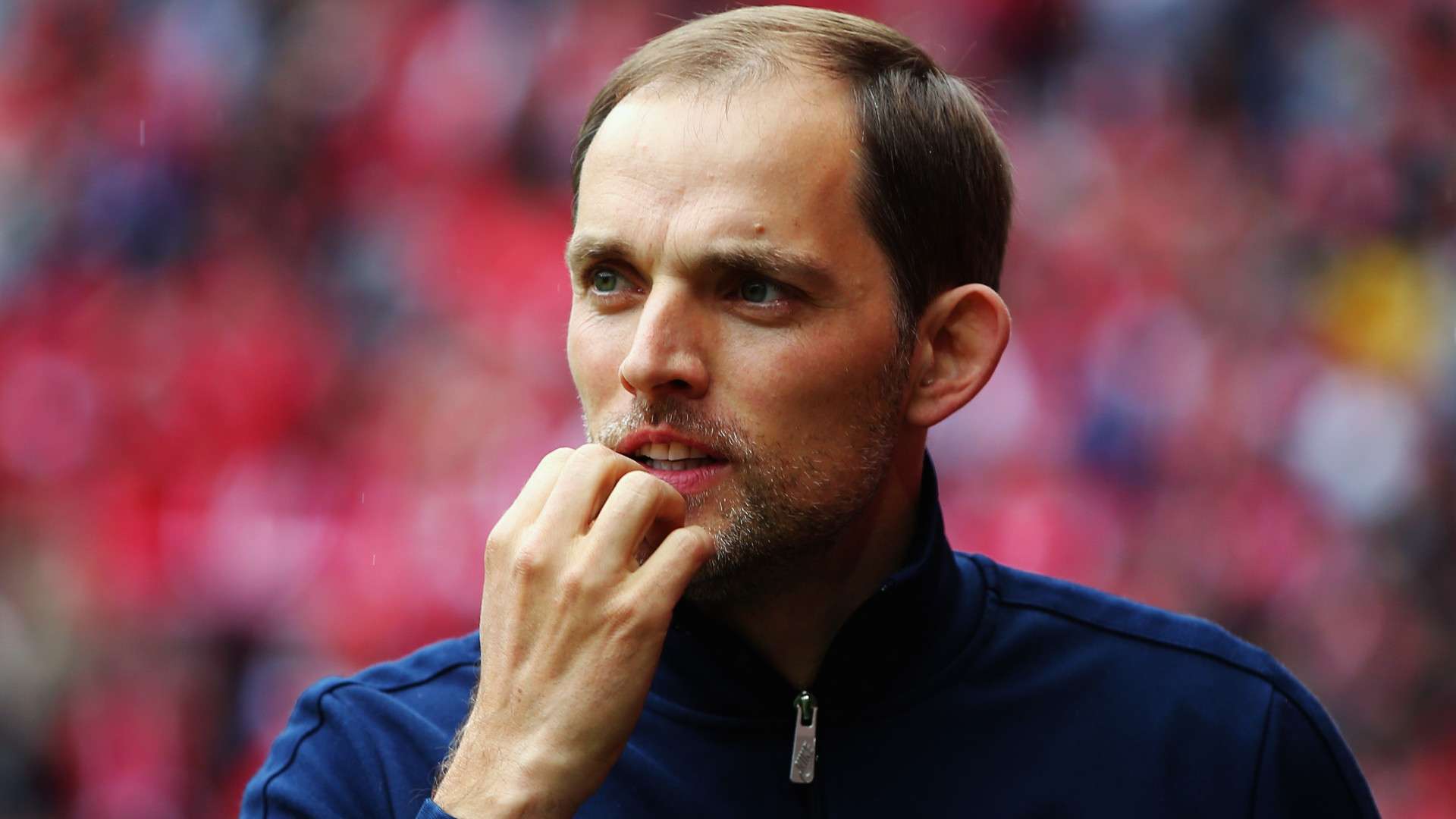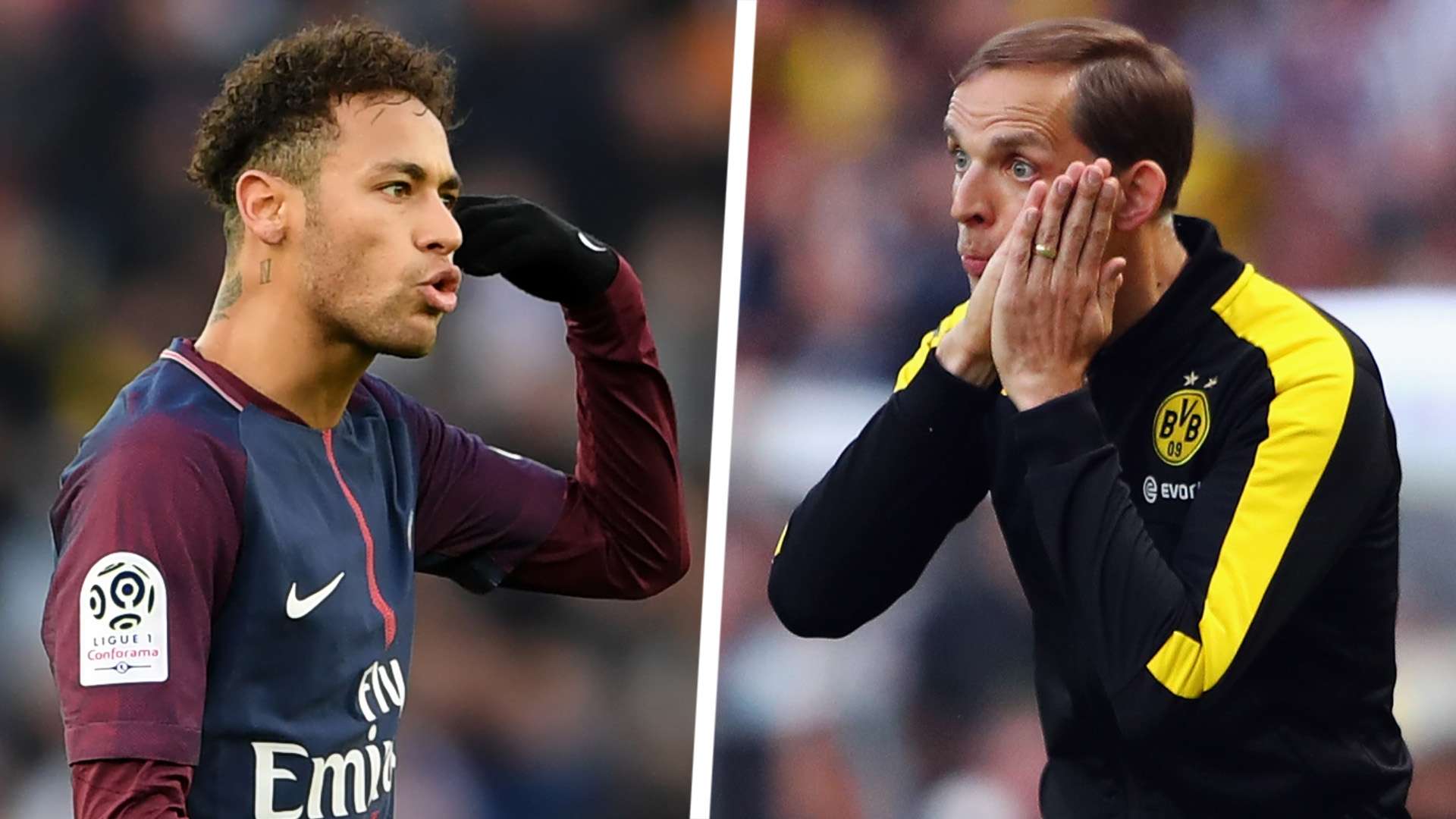PSG chairman Nasser Al-Khelaifi is a man used to getting what he wants. When he took over in Paris in 2011, he outlined his two main goals for the club: signing the 'next Messi' and challenging for the Champions League.
Success rarely happens overnight in football, but Al-Khelaifi is now more than halfway towards his dream. Not only do PSG have the best player in the world under 30 in Neymar, but also the best under-20 player in Kylian Mbappe. However, despite the side's excellent young talent and domination in Ligue 1 this season, coach Unai Emery fell way short of competing for Europe's biggest trophy, losing 5-2 to Real Madrid in the Champions League round of 16.
With Neymar and Mbappe already in place, Al-Khelaifi needed one more major piece to turn PSG into genuine contenders: someone with the tactical nous of taking on and overcoming Real Madrid and Europe's elite. Former Borussia Dortmund boss Thomas Tuchel is the man hired to replace Emery at Parc des Princes, but given his history of conflict with players and staff at former clubs, is the master tactician the right man to handle the equally petulant Neymar?
There is no doubting Tuchel's ability as a coach, working in a similar way to his mentor Pep Guardiola. At Dortmund, Tuchel's team were capable of playing in a variety of systems and approaches depending on their opponents, preferring the 4-2-3-1 or 4-3-3 system familiar to PSG, as well as 4-1-4-1 and even 3-5-2 or 3-4-2-1 formations as required.
This will surely make Ligue 1 success inevitable with his new club, as the German likes his players to retain possession and dominate their opponents both on and off the ball.
During Tuchel's time at BVB, he finished as runners-up to Guardiola's Bayern Munich in the Bundesliga, with the two also meeting in the 2016 DFB-Pokal final where Guardiola's men prevailed on penalties. Ahead of that game, Tuchel confirmed a story that had circulated about a previous encounter between the pair.
They met at Schumann's Bar in Munich in order to build a better relationship and get to know each other, but quickly the conversation moved to tactics and approaches. Guardiola and Tuchel used salt cellars and pepper casters to discuss different formations and systems. It became such an intense and heated discussion that the waiters were afraid to approach the two managers engaged in fierce debate, and waited until the conversation had finished before returning to the table.
Tuchel's intensity is part of the reason he is such a highly regarded and respected coach. His passion is evident on the pitch in the way his teams play. But, like Guardiola, he is also a complicated and somewhat controversial character. At Dortmund, his relationship with CEO Hans-Joachim Watzke became so strained that former BVB manager Ottmar Hitzfeld claimed it would be "fatal" for the club to keep Tuchel for another season. So, they didn't.
Three days after winning the DFB-Pokal in 2017, Tuchel was dismissed by Dortmund. Regarded as one of the brightest in the business and linked with major clubs including Arsenal, Watzke decided he had enough of the controlling coach. Watzke published an open letter about the departure, writing, "It is always about basic values like trust, respect, team and communication skills, authenticity and identification. It's about reliability and loyalty."

Tuchel's controlling nature goes to the most minute detail of players' lives, including specific food and diet plans, while he also inserts himself into the club's transfer dealings. It was this hands-on approach that led to chief scout Sven Mislintat leaving Dortmund for Arsenal, having been banned from the club's training ground by their meticulous manager. Mats Hummels' exit from BVB in 2016 was expedited by his frosty relationship with Tuchel, with the pair not settling their differences until a clear-the-air meeting in March 2018.
When Tuchel left midfielder Nuri Sahin out of the squad for the 2017 DFB-Pokal final with Eintracht Frankfurt, captain Marcel Schmelzer hit out at his coach, telling reporters: "It really shocked me, I didn't understand it at all. The coach would have to explain why he did it. We all completely stand behind Nuri."
Like his departure from Dortmund, Tuchel's tenure at Mainz also ended acrimoniously. Club president Harald Strutz accused his former head coach of being a "traitor" by going behind his back to negotiate with other clubs. Striker Anthony Ujah questioned Tuchel's human side due to his poor communication skills with players who had been dropped, while Ivan Klasnic went even further in his criticism of his former boss.
"He's a tough guy and I'm definitely not alone with that opinion," Klasnic told 11freunde. "He has 11 players he works with intensively. He does not like players who question things or give their opinions. He has his favorite players, who adapted well. That's how it appears to me anyway."
One player at PSG who is likely to question Tuchel's approach is €222 million signing Neymar. The world's most expensive player forced a move out of Barcelona last summer, but has been regularly criticised during his first season in Paris. His penalty spat with team-mate Edinson Cavani was widely publicised, while former Brazil international Walter Casagrande claimed that the media were "creating a monster" by validating his petulant behaviour.
Neymar's absence from some of PSG's games this season also led to suggestions that the 26-year-old was being allowed to choose which games to play under Emery, keeping himself fit for key clashes while also allowing him to pad out his scoring and assisting stats as he sets his sights on winning the Ballon d'Or ahead of Lionel Messi and Cristiano Ronaldo.
These are potential problems Tuchel will have to deal with in Paris. While he undoubtedly can turn the team into an efficient, attacking side due to his football brain, will his control-freak nature stand in the way of getting the best out of Neymar and PSG's other huge personalities?




